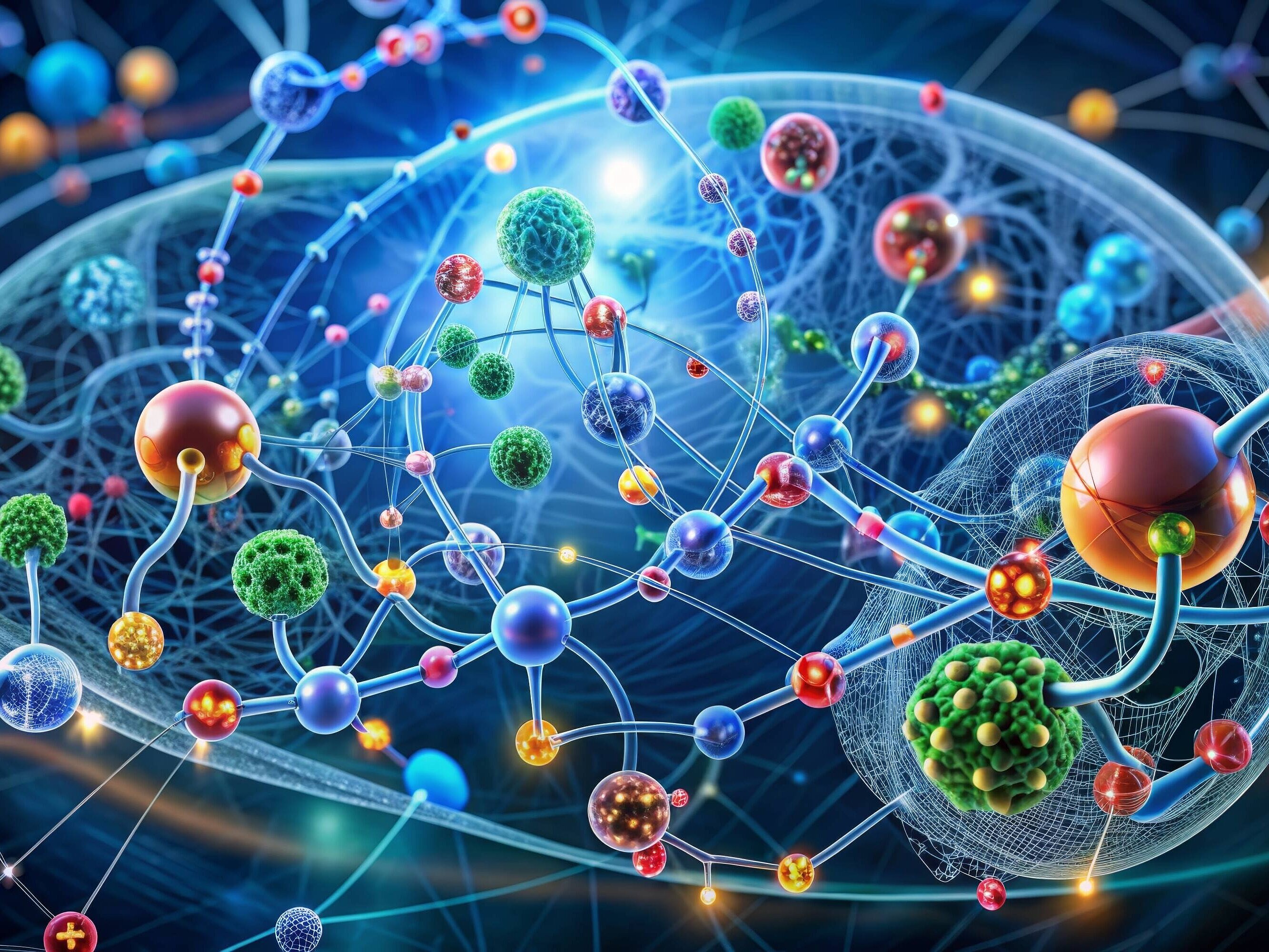
Cellular Metabolism in Infection

Our Research
The Cordes laboratory focuses on understanding the critical role of metabolism in cellular functions and its contribution to metabolic diseases associated with inflammation. We aim to characterize metabolic heterogeneity and interconnectivity of cells and pathogens by using metabolic flux, mass spectrometry, and engineering approaches. By understanding how metabolism drives cell function, we can identify metabolic vulnerabilities in inflammatory diseases.
We are specifically interested in applying metabolic systems biology approaches to uncover how metabolic pathways are reprogrammed in response to genetic perturbation, environmental stress, nutrient availability, or inflammatory signaling. We also aim to understand host-pathogen interactions and study inter- and intracellular transport mechanisms involved in metabolic and functional processes. Ultimately, our goal is to identify metabolic targets that can be targeted by therapeutically improving the lives of those affected by inflammatory diseases.
Our Research
The Cordes laboratory focuses on understanding the critical role of metabolism in cellular functions and its contribution to metabolic diseases associated with inflammation. We aim to characterize metabolic heterogeneity and interconnectivity of cells and pathogens by using metabolic flux, mass spectrometry, and engineering approaches. By understanding how metabolism drives cell function, we can identify metabolic vulnerabilities in inflammatory diseases.
We are specifically interested in applying metabolic systems biology approaches to uncover how metabolic pathways are reprogrammed in response to genetic perturbation, environmental stress, nutrient availability, or inflammatory signaling. We also aim to understand host-pathogen interactions and study inter- and intracellular transport mechanisms involved in metabolic and functional processes. Ultimately, our goal is to identify metabolic targets that can be targeted by therapeutically improving the lives of those affected by inflammatory diseases.
Prof Dr Thekla Cordes
As we continue to unravel the complexities of cellular function, it becomes increasingly clear that metabolism drives it all. We are only just scratching the surface of how metabolic pathways are reprogrammed in response to inflammatory diseases, but the potential for new therapeutic interventions is enormous.

With a diverse background in metabolism, mass spectrometry, metabolic flux analysis strategies, and bioprocess engineering, Prof Thekla Cordes brings an interdisciplinary and international perspective to her research. Her research focuses on investigating the role of mitochondrial dysfunction in mammalian metabolism by employing stable isotope tracer-assisted metabolic flux analysis to enhance our understanding of metabolism in health and disease.
Cordes began her academic journey by receiving a diploma in biotechnology from the Technische Universität Braunschweig (Germany) before joining Novartis Biologics in Basel (Switzerland) to conduct research in bioprocess engineering. Cordes received her Ph.D. at the Luxembourg Centre for Systems Biomedicine (Luxembourg). She was a DFG (German Research Foundation) Fellow and a Research Scientist at the University of California, San Diego (UCSD) and SALK Institute for Biological Studies in La Jolla (USA). Cordes is currently a professor of Cellular Metabolism at the Institute for Biochemistry, Biotechnology, and Bioinformatics at the TU Braunschweig (Germany) and head of the group Cellular Metabolism in Infection (CMII) at Helmholtz Centre for Infection Research (HZI). The Cordes laboratory is located at the Braunschweig Integrative Centre of Systems Biology (BRICS).
Team




Selected Publications
[Translate to English:]
Cordes, Thekla, et al. "Immunoresponsive gene 1 and itaconate inhibit succinate dehydrogenase to modulate intracellular succinate levels." Journal of Biological Chemistry 291.27 (2016): 14274-14284.
Cordes, Thekla, et al. "Itaconate modulates tricarboxylic acid and redox metabolism to mitigate reperfusion injury." Molecular metabolism 32 (2020): 122-135.
Michelucci, Alessandro, et al. "Immune-responsive gene 1 protein links metabolism to immunity by catalyzing itaconic acid production." Proceedings of the National Academy of Sciences 110.19 (2013): 7820-7825.
Cordes, Thekla, and Christian M. Metallo. "Itaconate alters succinate and coenzyme A metabolism via inhibition of mitochondrial complex II and methylmalonyl-CoA mutase." Metabolites 11.2 (2021): 117.
Cordes, Thekla, et al. "1-Deoxysphingolipid synthesis compromises anchorage-independent growth and plasma membrane endocytosis in cancer cells." Journal of Lipid Research 63.10 (2022).
Muthusamy, Thangaselvam, et al. "Serine restriction alters sphingolipid diversity to constrain tumour growth." Nature 586.7831 (2020): 790-795.
Publications
A full list can be found here: https://scholar.google.com/citations?user=WpyuS3wAAAAJ&hl=en&oi=ao

![[Translate to English:] Portrait Thekla Cordes](/fileadmin/user_upload/HZI/Media_Center/Newsroom/2024/TheklaCordes_1a.jpg)
